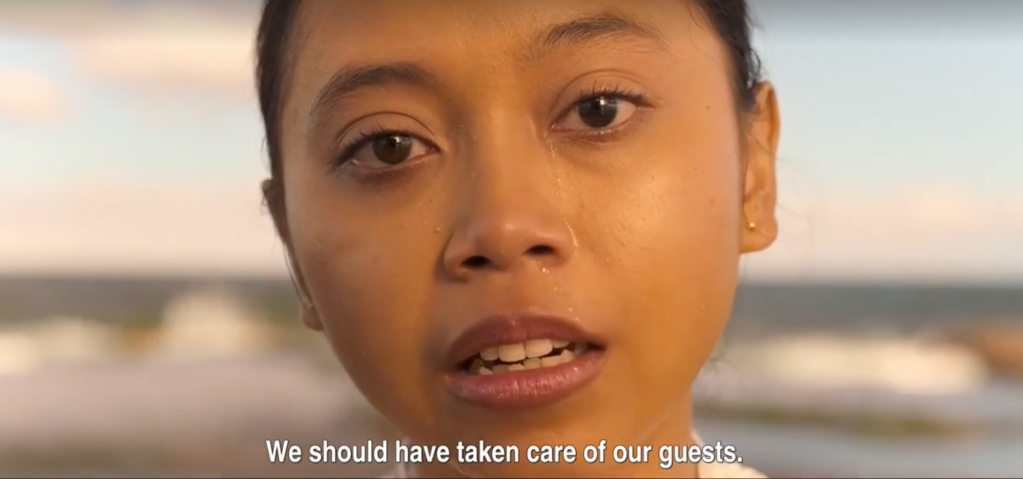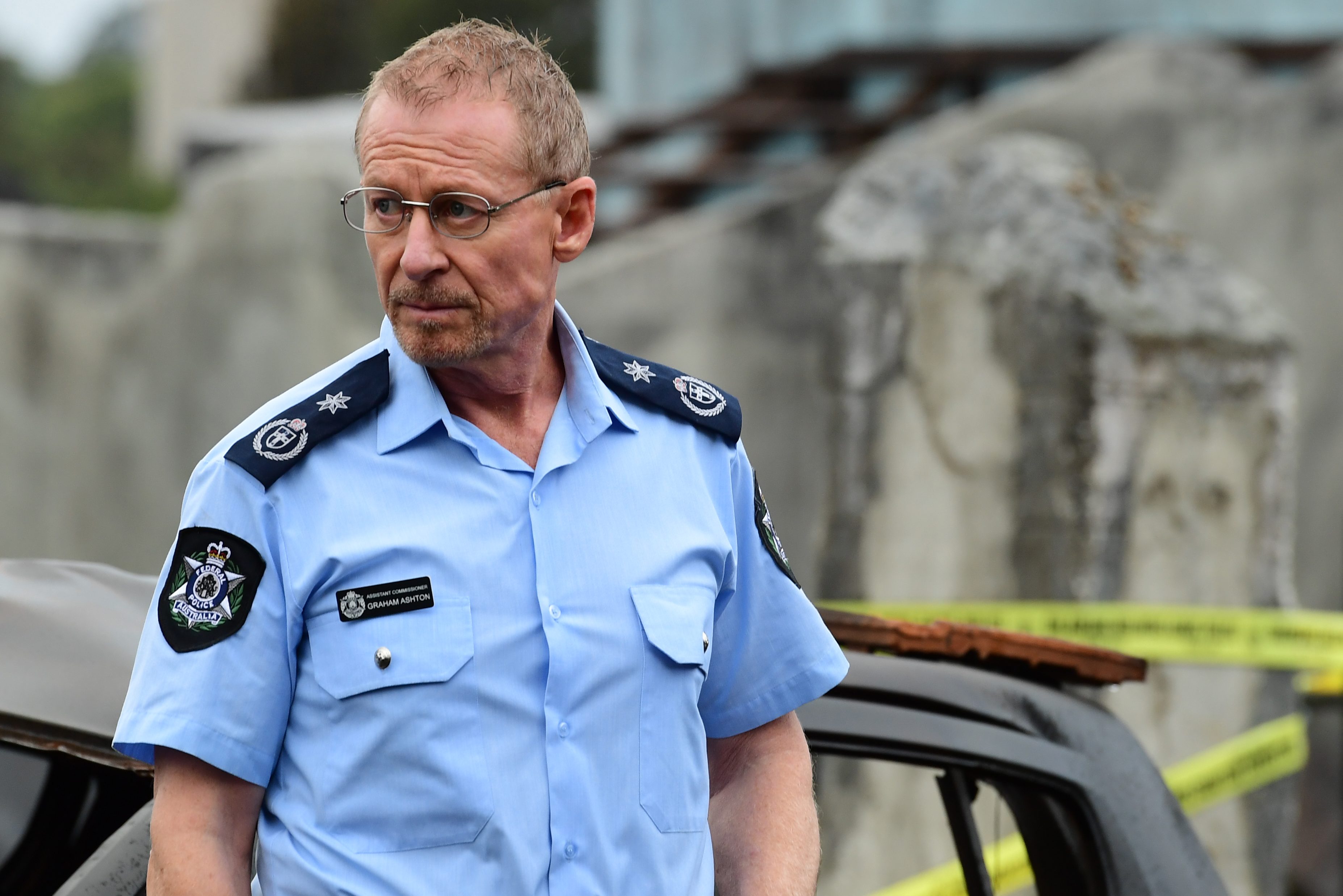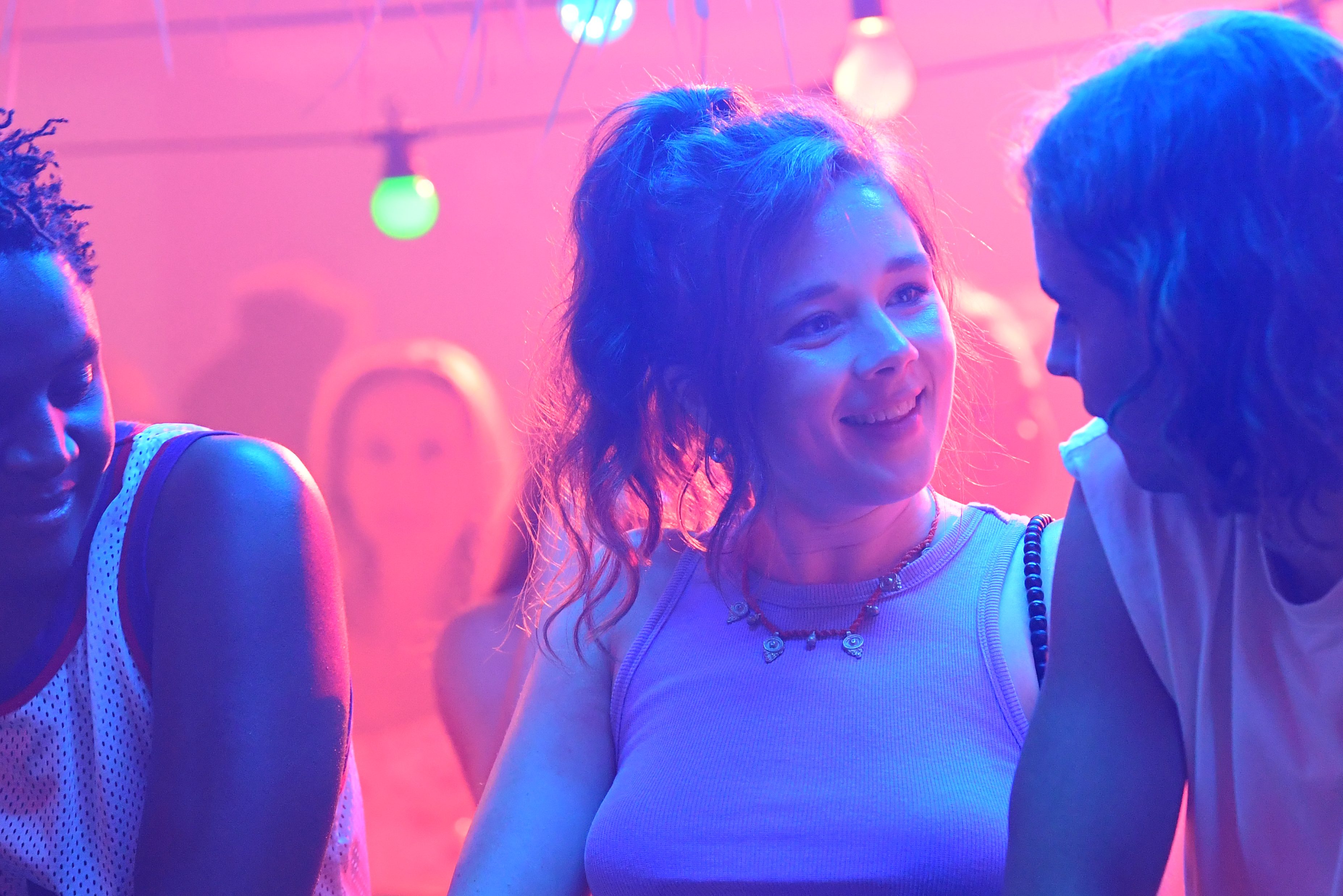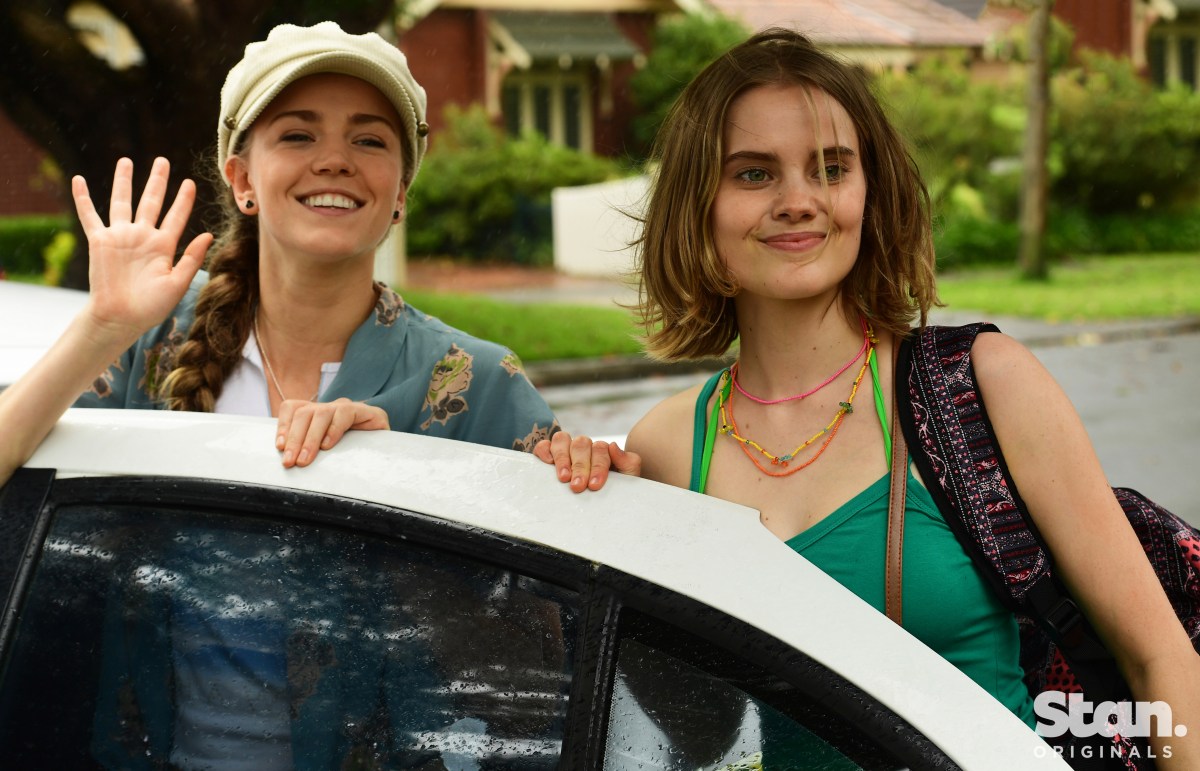Bali 2002 opens with a black screen. There’s the sound of dance music, then explosions and screams. Our first visual is a close up of Ni Luh (Sri Ayu Jati Kartika), who explains to us that good and evil are balanced. ‘Bali? Nothing could happen here,’ she says as tears run down her face. ‘I’m very sorry – what did we do wrong to make the gods angry?’
Watch: Bali 2002 trailer
It’s a striking start to the Stan mini-series, which focuses on the lead-up to and aftermath of the 2002 terrorist bombing of Paddy’s Bar and the Sari Club in Bali. It’s also a little uncomfortable. Presenting Bali as a paradise shattered by the gods strikes an odd opening note for a series that, for the most part, presents a grounded take on human suffering and perseverance in the face of politically motivated terrorism.

Setting the scene
The first of the four episodes focuses on various people – mostly young Australian and UK tourists – caught up in the bombings. Polly Miller (Claudi Jesse) is on her honeymoon from the UK; Nicole (Elizabeth Cullen) and bestie Natalie (Sophia Forrest) are just out for a good time. And while Ni Luh is at home with her two children, her husband Gede (Gerwin Widjaya) works Saturday night, changing foreign currency at the clubs.
Other characters get a brief introduction, taking the main stage in later episodes. AFL footballer Jason McCartney (Sean Keenan) is part of a group of North Melbourne players having a good time; Hanabeth (Saskia Archer) is in Kuta enjoying the surf with her boyfriend. And there’s the occasional scene where the suicide bombers are given their mission from ringleader Dr Azahari, just in case you’re not sure how all this is going to end.
The big names don’t make a full appearance until episode two. Richard Roxburgh is the thoughtful and measured AFP commander Graham Ashton, who’s sent to lead Australia’s quasi-legal investigation into a crime that’s under Indonesian jurisdiction. Rachel Griffiths is Doctor Fiona Wood, Perth-based burns specialist and inventor of a new spray-on skin treatment that you’ll be hearing a lot about here.

The angle
Some care has been taken with the Indonesian side of the story, with Ni Luh’s ongoing search for her missing husband running throughout the series. Ashton is portrayed as someone well aware of local sensitivities (unlike some of his team, and his superiors).
The bombing was the result of extremist terrorists looking to strike at the West; the series itself points out that the Sari Club was notorious for only letting westerners inside. The Indonesian concern about letting Australian police operate on their territory – investigating a crime that some think would not have happened if not for Western tourism – is presented as being at the very least understandable, while the Australian government itself doesn’t always come across in the best light.
But this is still an Australian product for Australian audiences, which means it’s largely a series about the victims and how they moved on (or didn’t). This doesn’t gloss over the horror of what happened, though the shots of charred corpses and body parts are largely kept to a minimum. It’s the chaos after the bombings that’s more striking; the use of archival footage adds a touch of documentary realism to what we’re seeing.
The large cast provides multiple viewpoints, avoiding any kind of didactic ‘one size fits all’ approach. Jason McCartney’s story is well known and remains powerful, while the other survivors’ struggles are no less moving. With Bali hospitals overwhelmed and infection rife, many succumbed to their wounds days afterwards. There are a number of characters here you shouldn’t get too attached to.

A sombre series
Overall the tone here is sombre and measured, taking a serious approach to a still-raw subject while keeping things varied enough to avoid overtly wallowing in suffering. Tracking down the terrorists is an ongoing subplot. Medical and logistical issues dominate the second episode, while the takedown of Dr Azahari and the trial of his henchmen is a big part of episode four.
Is twenty years too soon for a drama about the Bali bombings? Enough time has passed to leave this feeling more educational than exploitative, despite the occasional rough edge. It’s the kind of drama designed to come across as important rather than entertaining, aimed at a prestige audience not usually targeted by recent Australian television.
Read: Romper Stomper – revisiting a ‘dangerous’ classic 30 years on
It’s the kind of programming that says ‘we want to be taken seriously’. Coming from the one-time home of spin-offs based on Wolf Creek and Romper Stomper, it’s a serious step up.
Bali 2002 is a Stan co-production with the Nine Network, with all four episodes available on Stan from 25 September.
Actors:
Director:
Format: Movie
Country:
Release:





